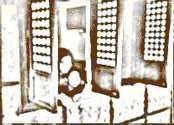Mentoring
Back in college [in the early ‘80s], I attended a couple, or probably more and I just couldn’t remember, of creative writing workshops. It was a high experience for me as I got acquainted with named literary writers and authors, and I received tips I needed for the craft I wanted to be good at—fiction writing. At that time, though, I was still writing short stories in Filipino; I now write in English, and I can’t write short stories anymore. My story ideas tend to evolve into novel material. I guess this is the result of years of reading novels. Anyways, I promised myself then I would follow in the footsteps of the Filipino greats I met during those workshops.
I didn’t follow in any of their footsteps. In fact, I got disillusioned by my own writing and writing experience that I decided at one point during my 20’s that literary writing was not really for me, only to wake up one morning in my mid-30s, probably also the beginning of mid-life, that I needed to ‘find’ and express myself again. I was looking for something I wanted to do that would be deeply connected with who I am, at a more personal level. To make the long story short from that mid-30’s period to my early 40’s now, I decided to write again.
Just like when I was in college, mentoring has also been an important part of my becoming and being a writer now. I received this ‘mentoring’ through the books I’ve read and continue to go back to—a number of them serendipitously encountered and bought. Topping the list are Julia Cameron’s The Right to Write and The Artist’s Way; a book of essays, which I stumbled upon one afternoon at the previously-owned books bookshop Bound, where I got ‘enlightenment’ from George Orwell and Joan Didion’s essays among others, and; Women Who Run with the Wolves by Clarissa Pinkola. This one was given to me by my former boss at my first ever job [Philippine News and Features]. It was Christmas 1994 when she gave it to me but I didn’t read it from cover to cover in a few sittings, because I found out while reading it that Pinkola’s book is something that has to be experienced. I would always know when it is time to read and go back to it, and during all these times I always find what I need. Many times, this book has ‘saved’ me from myself and from life’s complications that I’ve formed a special bond with it. I know it’s kind of weird to have a ‘relationship’ with a book, but it’s just how it is with Pinkola’s book. Then there’s another good find, Anna Quindlen’s anthology of essays, Living Out Loud, and most recently Natalie Goldberg’s Writing Down the Bones.
I still read about my craft, and there is this book I’ve used as reference a lot of times, Mastering Point of View by Sherri Szeman. But I am no longer inclined to attend workshops. I believe workshops have an upside to them and have benefited a lot of writers, but what I realized based on my experience in the last eight years, when I was struggling with the idea of becoming a writer or when I doubted whether the pursuit and practice of a writing life was real or would bring real significance to me and my family and to society, is that a writer needs a nurturing environment.
Critiquing a writer’s work may teach him or her something, but what will make an individual sustain this writing life is the presence of a community of friends and fellow writers who come together and share their work, just talk and understand the unique process each one is going through. It’s only through this kind of mentoring that a writer/artist could face up to the challenge of “artistic survival,” which according to Cameron is “one of the most difficult tasks” for an artist. And when she said this in The Artist’s Way, she was not referring only to economic or financial survival.
“All artists must learn the art of surviving loss: loss of hope, loss of face, loss of money, loss of self-belief…They are the hazards of the road and, in many ways, its signposts. Artistic losses can be turned into artistic gains—but not in the isolation of the beleaguered artist’s brain,” wrote Cameron.

